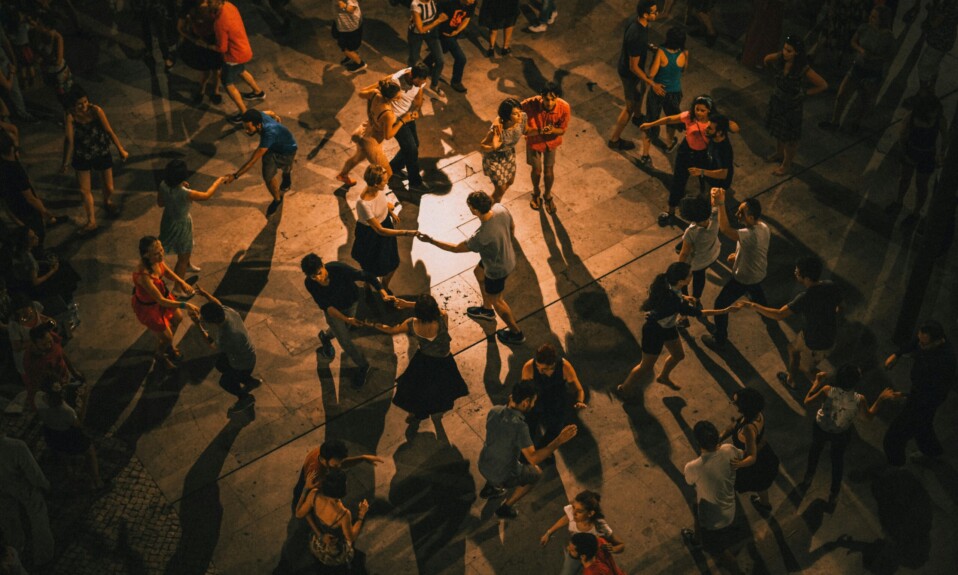Abstract
Illegal immigration into the United States has been a recurring problem for many years now, but more people are not deterred. There has been a form of misunderstanding among the immigrants that their actions are illegal because they argue based on positions that cannot be held. Most illegal immigrants view the illegalization of entry into the United States as the advancement of apartheid that could have started towards the late 20th century. For a long time, many people failed to acknowledge the reality, and some continue to attempt illegal entry into the United States regardless of a new legal regime to prohibit that. The lingering question in the matter is whether the government of the United States should be lenient on some people and restrict others. The position of this paper is that illegal immigration is a criminal activity that violates the supreme law of the country. The illegalization of unregistered immigration into the United States is a part of the process of evolution of the legal system of the country, as it has nothing to do with discrimination against any group.
Legal and Illegal Migration in the USA
Illegal immigration into the United States (US) has become a hot topic today. There have been clear misunderstandings of the regulation of entry into the US because some people think it was a discriminatory attempt introduced to lock out some unwanted individuals from entering the US. However, the truth could be far from such assertions because many people are experiencing such matters to try to salvage a situation that could result if regulation is not implemented. Although immigration into the US was unrestricted up to around 1965, it was necessary to introduce it to ensure the country was focusing on the right matters in development. Regardless of the opinion of those opposed to the illegality of immigration to the US, illegal immigration should be enacted and enforced by the government to limit undeserving people.
How History is Shaping the Debate
Some of the illegal immigrants into the US are using family separation as the reason for their pursuit to enter the US. Some of the individuals argue that denying them entry to the US is separating them from their ancestors who have lived in the US for many years. While some people argue that they have ancestors who lived in the US, they ignore that some of those people immigrated to the US when there was no law to limit entry (Chomsky, 2014). Such people would not pass the current legal regime. The late 19th century and mid-20th century witnessed immigration into the US that was unrestricted. The circumstances could allow it because economic opportunities are allowed. Until the immigration legislation into the US in 1965, none of those who wanted to immigrate to the US was denied. However, limiting the number of those entering the US was necessary after restructuring the country’s economy. Thus, the immigration restriction to the US was not a malicious legal introduction, as some people try to portray it.
America has had rules to regulate immigration into the country over the years. There have been expectations for the immigrants to explain or to pass through the right channel and justify their reason for going to the US. In the 19th century and earlier, the importation of enslaved people from different countries was to provide labor in the white farms. After emancipation, the demand for laborers from foreign countries was reduced, but the entry for immigrants was not denied. As early as 1907, the American government enacted a law requiring all US immigrants to follow the proper channels using official ports (Hernández, 2010). Such demand for foreigners existed until further enactment in 1965. Thus, any argument for discrimination against foreigners may have been misconstrued if the immigrants are not following the first requirement. Regulation of immigration is part of the process evolution for admitting foreigners into the US, and it should not be simplified as global apartheid.
Misconceptions about Illegal Immigration into the US
The assumption that the US should be the only country that should operate with a constant legal regime is evident in the argument of the proponents of illegal immigrants. Over the years, the increase in global insecurity has brought numerous challenges and has necessitated the legislation of things that were allowed in the past (Moloney, 2012). For example, the US has faced some terrorist attacks on several occasions, and the criminal justice system is dealing with the trafficking of narcotics associated with illegal immigrants. The assumption that immigrants into the US have absolute liberty has been the benchmark for the arguments of proponents of regulation of illegal immigration (Wilsher, 2011). The challenge of the involvement of immigrants in drug trafficking, among other crimes, has informed the regulation. They are ignoring the fact that the US should be allowed to secure its borders, an oversimplification of the problem that is facing the country.
The argument of parent-children reunion in the US is becoming a foothold for some immigrants, but it is not wholly credible. The argument that some illegal immigrants are attempting to reconnect with their families is misconstrued. Some of the family members who are living in the US are undocumented and cannot be the basis for allowing more illegal immigrants into the US (Yoshikawa, 2011). The pursuit of acceptance for those who do not meet the legal requirement can also be used to expose those who immigrated to the US without meeting the necessary legal qualifications. Some of the so-called ancestors and parents of the illegal immigrants into the US entered the country to stay for some time before returning. There are examples of Mexican and Chinese workers working in the US mines (Chomsky, 2014). Children of such individuals cannot have justified reasons to pursue entry and stay in the US because they have ancestors who live in the US. Whether the families of illegal immigrants have a long history of staying in the US cannot justify illegal immigration for the next generation of people.
Why Illegal Immigrants in the US Wrong
The modern world is experiencing limited resources that cannot satisfy the population. In the US, illegal immigrants who end up being undocumented impose pressure on the available resources. Planning for national resources is difficult when there are undocumented people within the country. In other circumstances, the quality of life of illegal immigrants is compromised if the government cannot serve such people (Yoshikawa, 2011). Undocumented immigrants cannot receive government services, which can affect their quality of life and reduce their chances of survival. The situation can affect the next generation of illegal immigrants. When the children of illegal immigrants cannot receive quality services, they suffer unnecessary inconveniences that make them uncompetitive compared to legal children. The quality of education and healthcare for students of illegal immigrant parents is lower compared to that of legally accepted children (Yoshikawa, 2011). Children end up experiencing trouble that affects their lives for no good reason.
Illegal immigration deprives the native US residents of the privilege of benefiting from the resources in their country. The labor market has been one of the areas in which the competition for opportunities has affected the quality of lives of American citizens. When immigrants saturate the American labor market, there is a growing challenge of reducing the competitiveness of the American people. Instead of the demand for services, the supply is more than is required. This situation has reduced Americans’ hourly wages (Chomsky, 2014). Destroying the US labor market balance is causing some American citizens to earn less than they could have earned in other circumstances. The situation is even though corrupted citizens facilitate the presence of illegal immigrants. The American citizens who could have earned more are earning less because of the increased labor supply from foreigners.
The US government expects to regulate its service to the citizens. When people immigrate to the country without permission, the government is expected to hold them accountable for their actions. Like individuals would face intrusion in their premises, the US government is responsible for regulating intrusion into their country. The immigration law in the US is to protect the country from receiving people who have ulterior motives (García, 2019). The law exists to protect, prosecute, permit, and prohibit those on whom it is administered to ensure that they can be shielded from the excesses of others. The design of the immigration law for US citizens is informed by the requirement to save the lives of the people in the country. The legal apparatus for controlling entry into the US has been fair since they were established. Failure to adhere to the legal requirements for entry into the US should be a problem for those without permission.
The rights of illegal immigrants are not more significant than the rights of law-abiding citizens in the US. Human rights groups have projected an image of a government of the US that is ignoring the rights of people. The double standard that human rights groups are projecting when dealing with illegal immigrants is the reason why some people advance the debate on the protection of illegal immigrants. The decision to detain illegal immigrants in the US is supposed to be considered in the same light as the treatment of any criminal who is caught breaking the law (Wilsher, 2011). The politics of illegal detention should be focused on its purposes. The need to deter illegal immigrants should be considered a valid reason for detaining those who attempt the illegality before their deportation. Attempting to politicize the status of unauthorized foreigners because they are not residents and because they are not outlaws is delaying the attainment of a solution.
The cost of handling illegal immigrants is becoming an unnecessary expense for the US government. Without illegal immigration, there would be less investment in border security. Many people have been employed to protect illegal immigrants from entering the US. The US government is investing significant resources in different technology equipment to enhance the protection of their borders (Moloney, 2012). The US government would save many resources if the situation were contained differently. Managing illegal immigration into the US is a liability that can be avoided. Justifying the spending of more resources to handle illegal immigration is an unfair call to the government of the US (Wilsher, 2011). Investing such resources in other ventures can help further contribute to the country’s development. Such can further improve the quality of the country’s citizens and the national image.
The US government has not illegalized immigration into the country, but those who do so should follow the established channels. The use of illegal channels to enter the US is a suggestion that some individuals are prepared to face off with the government (Chomsky, 2014). Many people have been able to migrate to the US without encountering challenges where their rights are violated. Ignoring the proper channels to use the outlawed channels is tantamount to lawbreaking. Supporting illegal immigrants by using arguments that the US government is discriminatory is introducing an irrelevant discussion about doing things right. The religious perception that all people should be allowed to stay in any part of the country is a simplistic perception that ignores the legal provision of state existence (Heimburger, 2017). The state and the religion have their places that should not conflict. Additionally, abiding by the state’s law should be considered a way through which the state should attain order.
Globalization has led to many changes in the running of the government and nations. Any institution is experiencing changes, and the evolution to adjust to a new environment is necessary. The legal evolution of the American legal system to control the interaction between the residents and foreigners is essential. When there were few immigrants in the world, it was not a problem that required regulation. According to Chomsky (2014), the regulation of individuals started when the number of immigrants increased significantly. Allowing the increase in the number of foreigners without maintaining the quality of life can dilute the progress of the US. Introducing new laws that helped the US select the right people who could meet the needs of foreigners in the country was essential to ensure that the country was not attracting people who were unlikely to add any value and contribute to the country’s development was a necessary undertaking.
Conclusion
All countries have created an environment that enhances their growth and development. The US has been in the limelight because of the debate about illegal immigration. While some people have held that illegal immigration should not be allowed, others think that the US government is applying unnecessary force to limit the increase in the number of people who are entering the country. Increased security issues and other criminal activities are underpinning the reason why illegalizing entry for unauthorized immigrants into the US is necessary. On the other hand, the economic dynamics of the US justify the reason for limiting illegal immigration. Regardless of the claim by human rights groups that oppose the actions of the government that detains illegal foreigners, the cost of doing the opposite is higher for the US. The US government is spending more money to deal with illegal immigration than it should.
References
Chomsky, A. (2014). Undocumented: How immigration became illegal. Beacon Press.
García, A. S. (2019). Legal passing: Navigating undocumented life and local immigration law. University of California Press. https://lccn.loc.gov/2018041656
Heimburger, R. W. (2017). God and the Illegal Alien: United States Immigration Law and a Theology of Politics. Cambridge University Press. https://doi.org/10.1017/9781316817131
Hernández, K. L. (2010). Migra!: A history of the US border patrol (Vol. 29). Univ of California Press.
Moloney, D. M. (2012). National insecurities: Immigrants and us deportation policy since 1882. Univ of North Carolina Press.
Wilsher, D. (2011). Immigration detention: law, history, politics. Cambridge University Press. www.cambridge.org/9781107005761
Yoshikawa, H. (2011). Immigrants raising citizens: Undocumented parents and their children. Russell Sage Foundation.










